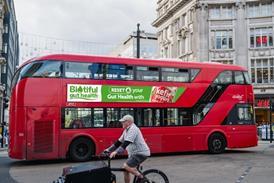Retail trade bodies have labelled the government’s draft code of practice for alcohol retailers as “confusing” and “bad for competition”.
In the Home Office's 'Consultation on the new code of practice for alcohol retailers', the proposed mandatory code requires retailers to display information about the alcohol unit content of drinks and the impact on health.
The government also suggested a flexible set of conditions that could be imposed at the discretion of local authorities. These include banning bulk buy promotions where a consumer must buy a certain amount of alcohol to obtain a discount, and requiring staff to operate a Challenge 21 policy.
Any premises that are found to be breaching the mandatory code or local discretionary conditions could face a range of sanctions including loss of licence, having additional conditions imposed on their license, or on summary conviction, a maximum £20,000 fine and/or six months imprisonment.
The government decided not to proceed with the rumoured minimum unit pricing, as it said that it would punish unfairly the sensible majority of moderate and sensible drinkers. The consultation did commit to further researching the subject.
Association of Convenience Stores chief executive James Lowman urged Home Secretary Jacqui Smith to think carefully about the confusion that these proposed changes will bring in.
“These new proposals will confuse licensing officers, retailers and local people who are already using the Licensing Act effectively to tackle problems.”
Lowman added that proposing to make it a condition on a license that premises adopt a Challenge 21 policy is ill-conceived. He said: “If a Local Authority imposed this option, a retailer selling alcohol to a 20-year-old would potentially face a tougher penalty than if they sold to a 14-year-old.”
British Retail Consortium director general Stephen Robertson welcomed the government’s rejection of minimum pricing. However he criticised its proposed ban on shop promotions. “Allowing local authorities to single out individual stores and their customers for promotions bans would deny people access to value and could undermine local grocery-market competition,” he said.
In the Home Office's 'Consultation on the new code of practice for alcohol retailers', the proposed mandatory code requires retailers to display information about the alcohol unit content of drinks and the impact on health.
The government also suggested a flexible set of conditions that could be imposed at the discretion of local authorities. These include banning bulk buy promotions where a consumer must buy a certain amount of alcohol to obtain a discount, and requiring staff to operate a Challenge 21 policy.
Any premises that are found to be breaching the mandatory code or local discretionary conditions could face a range of sanctions including loss of licence, having additional conditions imposed on their license, or on summary conviction, a maximum £20,000 fine and/or six months imprisonment.
The government decided not to proceed with the rumoured minimum unit pricing, as it said that it would punish unfairly the sensible majority of moderate and sensible drinkers. The consultation did commit to further researching the subject.
Association of Convenience Stores chief executive James Lowman urged Home Secretary Jacqui Smith to think carefully about the confusion that these proposed changes will bring in.
“These new proposals will confuse licensing officers, retailers and local people who are already using the Licensing Act effectively to tackle problems.”
Lowman added that proposing to make it a condition on a license that premises adopt a Challenge 21 policy is ill-conceived. He said: “If a Local Authority imposed this option, a retailer selling alcohol to a 20-year-old would potentially face a tougher penalty than if they sold to a 14-year-old.”
British Retail Consortium director general Stephen Robertson welcomed the government’s rejection of minimum pricing. However he criticised its proposed ban on shop promotions. “Allowing local authorities to single out individual stores and their customers for promotions bans would deny people access to value and could undermine local grocery-market competition,” he said.



















No comments yet